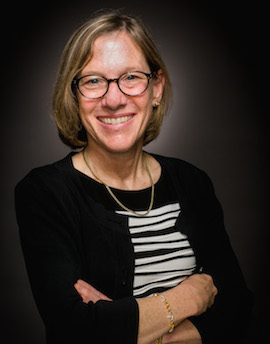 In my final dean’s note, I want to express my appreciation and gratitude to the Boston University community for your contributions to and passion for our noble mission. When I came to Boston University three years ago I knew that I was coming to a university with a progressive history of education to enable social mobility that was on an impressive upward trajectory in the national rankings. What I have found is a community of talented, hardworking, committed faculty, staff, and students who boldly face challenges and eagerly embrace opportunity. I also found enthusiastic support for our mission from alumni and friends who lend their time, talent, and treasure to help create amazing opportunities for students and to support faculty research and teaching. To be sure, we have weathered some storms, both literal and figurative, and challenges lie ahead for the College of Arts & Sciences and higher education generally. But I am proud of what we have achieved together in my time here, and I foresee great things in the future for this extraordinary community of scholars.
In my final dean’s note, I want to express my appreciation and gratitude to the Boston University community for your contributions to and passion for our noble mission. When I came to Boston University three years ago I knew that I was coming to a university with a progressive history of education to enable social mobility that was on an impressive upward trajectory in the national rankings. What I have found is a community of talented, hardworking, committed faculty, staff, and students who boldly face challenges and eagerly embrace opportunity. I also found enthusiastic support for our mission from alumni and friends who lend their time, talent, and treasure to help create amazing opportunities for students and to support faculty research and teaching. To be sure, we have weathered some storms, both literal and figurative, and challenges lie ahead for the College of Arts & Sciences and higher education generally. But I am proud of what we have achieved together in my time here, and I foresee great things in the future for this extraordinary community of scholars.
Among our many collective achievements, I will highlight just two: the BU Hub and experiential learning initiatives. Over the past three years, the BU Hub has evolved from an administrative directive to create a general education program to unify and brand the BU undergraduate experience into an innovation platform to enshrine liberal education throughout the university. This work has been led primarily by CAS faculty and staff, and we should take great pride in what has been achieved. While there remain questions about how the broad-based bachelor of arts degree and intensive science majors sit within its framework, and about how course enrollments will be divided across departments, the Hub is already generating great excitement with incoming students and their families. One can easily see why by perusing the new courses and advising materials that have been developed for the Hub.
In the past three years we have also developed experiential learning programs to empower our students to connect their liberal education to real world challenges. We have pioneered several new internship programs, including the CAS On-Campus Internship Program, BU in San Francisco, humanities internships in publishing, and public humanities internships in non-profit civic, educational, and arts organizations. CAS staff and faculty have also played leading roles in developing new programs that help students match their talents and creative energies with community and industry needs, including MetroBridge, Spark!, and Innovate@BU. Through these and other experiential learning programs, students learn how to turn their education into impact and develop confidence and purpose as they enter the world of work.
In parting, I want to frame a question for the College. How do we best support the strength and vitality of our PhD programs, while maintaining a unified College of Arts & Sciences that embodies the philosophy of liberal education? I believe this question is particularly relevant as the university launches a major strategic planning effort. PhD programs support and enliven faculty research while nurturing the scholars, leaders, and innovative scientists of the future. Their continued vitality is essential to the mission of a great research university but depends on deep and continuous investment. How do we think about the investments across a wide diversity of offerings as we have in CAS? Equally valuable, maintaining the breadth of the College of Arts & Sciences is essential to effectively serve the mission of liberal education, which is the unique contribution of American higher education and the proud legacy of Boston University. The challenge of maintaining this broad College is to resist pressures to fragment in the name of specialization and sharper focus, which might be seen as in the interest of improving PhD programs. My view is that the disciplines of the arts and sciences intellectually support each other and provide opportunities for creative connections within the College that are hard to develop across the boundaries of independent schools and colleges. This view will surely be tested in the coming years.
It has been an incredible privilege and great personal pleasure to lead the College of Arts & Sciences as your dean for the past three years, and it is painful for me to leave when so many interesting and important challenges and opportunities lie ahead. Thank you for all you have done to further our mission to provide an outstanding liberal education, perform pathbreaking research, and make discoveries that benefit humanity. And thank you for supporting me and my vision for what a great college of arts and sciences can be. I will be closely watching BU’s future progress with great interest from my new perch in the Cathedral of Learning at the University of Pittsburgh. I wish you all the best.